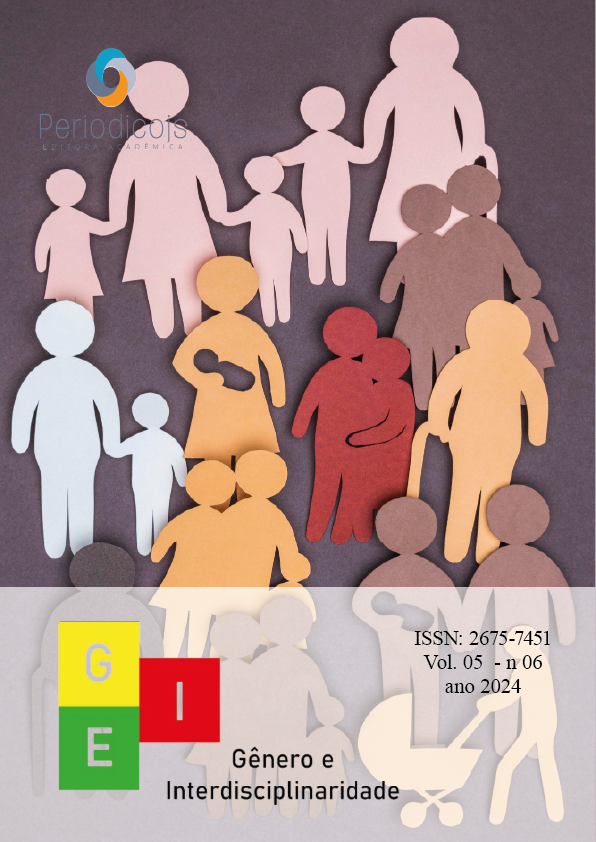Abstract
This paper aims to present the challenges imposed on educational institutions that seek to adapt to the learning needs of students with special needs. A special and inclusive education that aims at the development of multiple skills through innovations and inclusive pedagogical practices. Where it is necessary to implement public policies inside and outside the school environment that will support the process of inserting these students into regular education classes, as they have a right to, as well as individual and specialized monitoring so that they can develop their potential. Here, we highlight the struggles and achievements that permeate the history of these people who so much seek their rights, having the validity of the process of change that is necessary in the search for a meaningful education. Thus, the objective of this work is to present the role of the school as an inclusive space that brings together, respects and welcomes differences, where it is necessary to subsidize the necessary resources for the improvement of new practices, with trained professionals, an inclusive education that serves students in their entirety, from physical resources, highlighting the school structure itself, to specific teaching materials and the various resources that support this process.
References
BRASIL. Ministério da Educação. Diretrizes nacionais para a educação especial na educação básica/Secretaria de Educação Especial. MEC/SEESP, 2001.
___________Lei de Diretrizes e Bases da Educação Nacional. Lei nº9.394/96, de 20 de dezembro de 1996.
CHEQUIM, Caroline Corrêa Fortes. Psicologia e a pessoa com deficiência: O direito à inclusão. [S. l.], p. 15, 2018.
DUARTE, Daiane. Psicologia e a pessoa com deficiência: O conceito de deficiência. [S. l.], p. 15, jul. 2018.
FILOSOFIA HOJE. Inclusão social de pessoas com necessidades especiais. 2016.
FONSECA, V. (1995). Educação Especial: programa de estimulação precoce. Uma introdução às idéias de Feurstein. Porto Alegre: Artes Médicas.
GLAT, R., Magalhães, E. F. C. B. de & Carneiro, R. (1998). Capacitação de professores: primeiro passo para uma educação inclusiva. Em M. C. Marquezine; M. A. Almeida; E. D. O. Tanaka; N. N. R. Mori & E. M. Shimazaki (Orgs.), Perspectivas multidisciplinares em educação especial (pp. 373 - 378) Londrina: Ed. UEL.
GOTTI, M. O. (1998). Integração e Inclusão: nova perspectiva sobre a prática da educação especial. Em M. C. Marquezine; M. A. Almeida; E. D. O. Tanaka; N. N. R. Mori & E. M. Shimazaki (Orgs.), Perspectivas multidisciplinares em educação especial (pp. 365 – 372) Londrina: Ed. UEL.
MANTOAN, Maria Teresa Eglér. Inclusão escolar: O que é? Por quê? Como fazer? São Paulo: Moderna, 2005
____________A Integração de pessoas com deficiência: contribuições para uma reflexão sobre o tema. São Paulo: Memnon. Editora SENAC, 1997.
MINISTÉRIO DA EDUCAÇÃO E DO DESPORTO. Secretaria de Educação Especial. Política Nacional de Educação Especial. Brasília: MEC, 1994.
SANT’ANA, I. M. (2003). Educação Inclusiva: Concepções de Professores e Diretores. Dissertação de Mestrado, Pontifícia Universidade Católica de Campinas, Campinas, SP.
SARTORETTO, M L. M. (2001). Uma conquista de pais, professores e alunos. Em M. T. E. Mantoan (Org.), Caminhos pedagógicos da inclusão: como estamos implementando a educação (de qualidade) para todos nas escolas brasileiras (pp. 95-134) São Paulo: Memnon.
Tesini, S. F. & Manzini, E. J. (1999). Perspectivas de professores que trabalham com deficientes mentais sobre a proposta de inclusão na rede oficial de ensino. Em E.J. Manzini (Org.). Integração do aluno com deficiência: perspectiva e prática pedagógica (pp.85-96) Marília: UNESP





